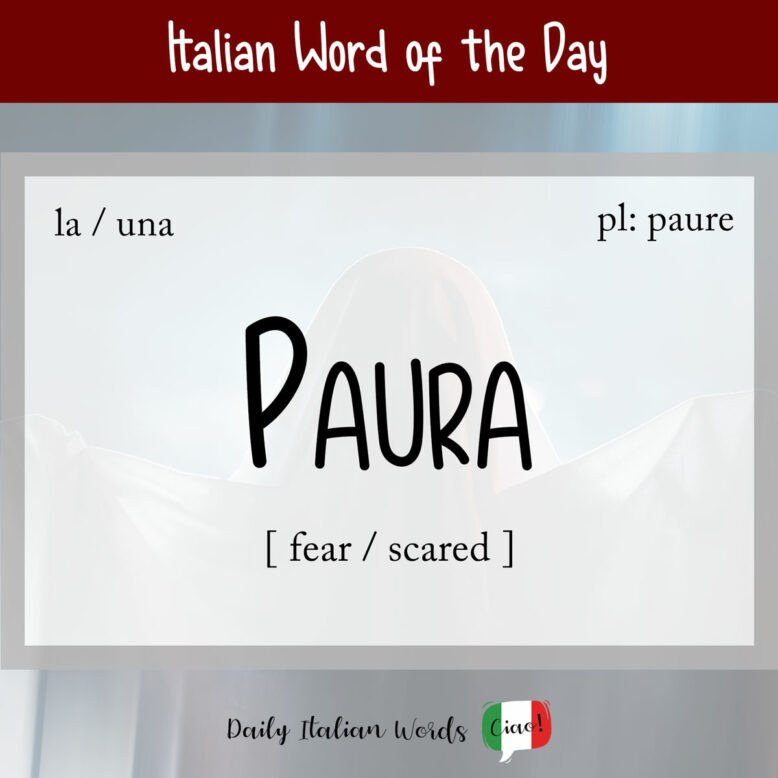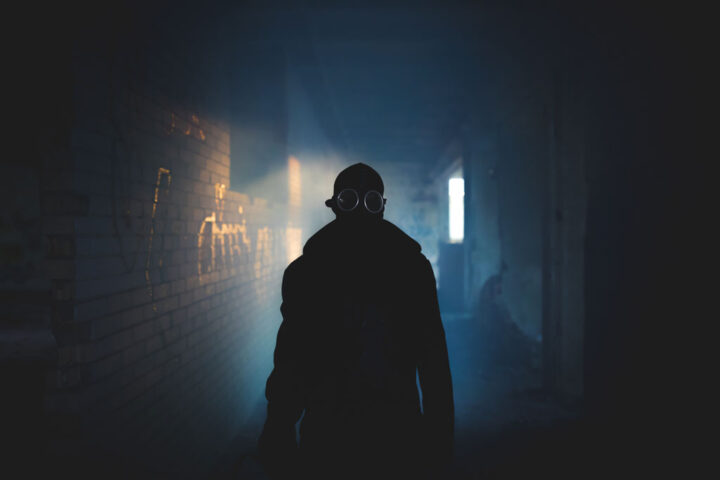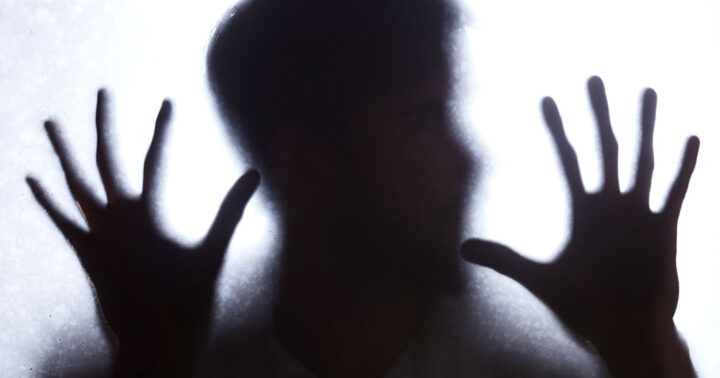The word for fear in Italian is paura and it derives from the Latin pavor meaning fear or fright.
paura
fear / fright / scared

Being a feminine noun, it takes the following definite and indefinite articles:
- la paura
- le paure
- una paura
- delle paure
It can be combined with the verbs avere (to have), fare (to do/make) and prendere (to take/get) to create some extremely useful phrases:
- avere paura = to be scared (literally: to have fear)
Non avere paura. È solo un cane!
Don’t be scared. It’s only a dog!
- farsi prendere dalla paura = to get a fright, be scared by (literally: to get caught by fear)
Il cane ha cominciato ad abbaiare e i bambini si sono fatti prendere dalla paura.
The dog started to bark and they got scared by it.
- far paura = to scare, to be scary (literally: to make fear)
Questo film dell’orrore ci fa paura!
This horror film scares us!

Combined with the preposition da, you get the expression da paura which is a slang term that roughly translates as cool or awesome in English.
Ho comprato una macchina da paura!
I bought a cool car!
The expression da far paura, on the other hand, is an emphatic phrase used to describe something bad, terrifying, dangerous or impressive such as a person or object’s appearance.
Mamma mia, hai un aspetto da far paura!
My goodness, you look like something the cat dragged in!
Another very common expression is Che paura! which means How scary!
The adjective pauroso can be used for a person who a) is a coward, b) gets scared easily or c) is scary. What’s more, it can also be a synonym for sbalorditivo (astonishing) or straordinario (extroardinary).
A useful synonym of paura is fifa, and it means exactly the same thing. It is often combined with blu (blue) in the expression avere una fifa blu which means to be really scared. The derivatives fifone (masculine) or fifona (feminine) describe someone who is often scared of things, or lacks bravery.
Various expressions to say that you are really scared include:
- avere una paura matta / folle (lit: to have a crazy fear)
- tremare dalla paura (lit: to tremble in fear)
- morire dalla paura (lit: to die of fear)
In Italian, paura can be described in different terms depending on its degree of intensity. On the less intense end of the spectrum, we have timore (mild fear) and ansia (anxiety) and on the more intense, fobia (phobia), panico (panic), terrore (terror) and orrore (horror).

Finally, you can use the verb avere (to have) with paura to express a concern or worry. Although the verbs preoccupare or preoccuparsi exist, in the example below avere paura is much more common.
Ho paura che la pioggia durerà ancora una settimana.
I’m afraid / worried that the rain will last another week.
Expressions featuring the word ‘paura’
Essere (mezzo) morto dalla paura
Literal translation: to be half dead from fear
English meaning: to be scared to death
La paura fa novanta
Literal translation: fear makes ninety
English meaning: fear makes you do unthinkable things
Diventare bianco dalla paura
Literal translation: to become white from fear
English meaning: to become terribly frightened
Avere paura anche di respirare
Literal translation: to also be afraid to breathe
English meaning: to be frightened of everything
Aver paura della propria ombra
Literal translation: to be afraid of one’s own shadow
English meaning: to be afraid of one’s own shadow

Heather Broster is a graduate with honours in linguistics from the University of Western Ontario. She is an aspiring polyglot, proficient in English and Italian, as well as Japanese, Welsh, and French to varying degrees of fluency. Originally from Toronto, Heather has resided in various countries, notably Italy for a period of six years. Her primary focus lies in the fields of language acquisition, education, and bilingual instruction.


